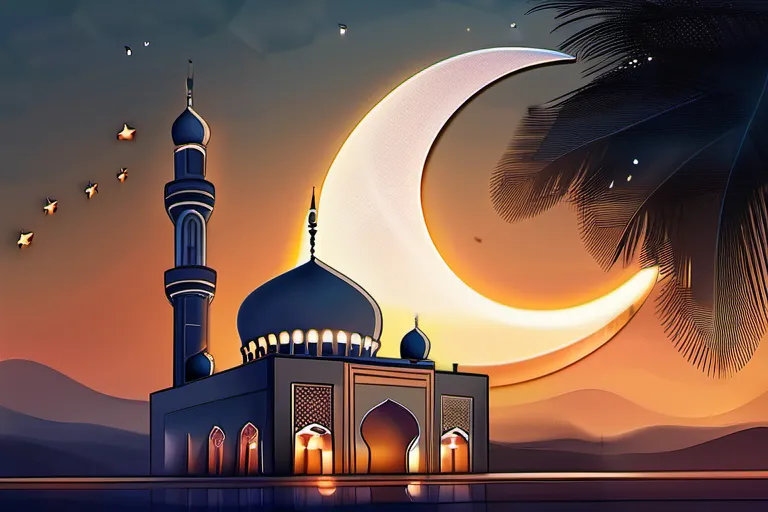Explore the fundamental beliefs, practices, and history of Islam in this detailed article.
Islam is one of the world’s major religions, with over 1.8 billion followers worldwide. In this article, we delve into the core beliefs, practices, and history that define Islam. From the Five Pillars to the significance of the Quran, join us as we explore the rich tapestry of Muslim beliefs.
The Five Pillars of Islam
Imagine a towering mountain that stands as a symbol of unwavering commitment and dedication—this is what Islam represents for millions around the world. But how do these mountains come into being? Just like a mountain, Islam’s foundation is built on five pillars that support its very existence. These are not mere stones; they are the beliefs and practices that every Muslim follows to strengthen their faith and connection with Allah. Let’s explore each of these pillars in detail.
Shahada, often referred to as the declaration of faith, is like the first stone laid down. It’s a simple statement: ‘There is no god but Allah, and Muhammad is His messenger.’ This belief encapsulates the core of Islam, acknowledging the oneness of Allah and recognizing Muhammad as His chosen prophet. How often do we take such fundamental beliefs for granted? Shahada serves as a cornerstone, setting the stage for all other pillars.
Salah, or prayer, is like the rhythmic beat that keeps the mountain alive. Five times a day, Muslims bow and prostrate themselves in masjids (mosques) or wherever they may be. This act of standing before Allah reminds us of our place in His vast creation. How can we ignore the profound impact this routine has on our lives? Salah is a constant reminder of our commitment to worship and devotion.
Zakat, or almsgiving, is like the water that nurtures the mountain’s base. It’s not just about giving charity; it’s an act of purification and self-reflection. By distributing wealth in accordance with Allah‘s will, Muslims ensure that no one in their community remains in poverty. How can we overlook this essential practice that brings us closer to our fellow human beings? Zakat embodies the essence of compassion and social responsibility.
Sawm, or fasting during Ramadan, is like the seasonal rains that rejuvenate the mountain after a long dry spell. Fasting from dawn until sunset teaches discipline and self-restraint. It’s about abstinence not only for physical reasons but also as a spiritual cleanse. How can we ignore the profound introspection this practice brings? Sawm allows us to reflect on our daily choices and intentions.
Hajj, or pilgrimage, is like the annual migration that connects every mountain peak with its base. This ritual journey to Masjid al-Haram in Makkah unites Muslims from all corners of the earth under a shared purpose. How can we overlook this once-in-a-lifetime experience that symbolizes unity and submission? Hajj is not just about visiting a holy site but a reaffirmation of one’s faith through action.
Together, these five pillars form the majestic mountain of Islam, each stone representing a unique aspect of its rich tapestry. Understanding and embracing them can transform our lives, much like standing on the summit of this mountain offers unparalleled views of the world below. So, let us embark on this journey of faith together, exploring the depths of our beliefs through these fundamental practices.
The Quran: The Holy Book of Islam
The Quran: The Holy Book of Islam
Imagine the Quran as a lighthouse, guiding ships through tumultuous seas. For Muslims, it is not just a book; it is the word of Allah, delivered to humanity via Prophet Muhammad. But where did this timeless text come from, and how does it shape daily life?
The revelation of the Quran began in a cave near Mecca around 610 CE. Legend has it that one night, Prophet Muhammad was visited by the angel Gabriel, who commanded him to read: ‘Read in the name of your Lord who created.’ This encounter marked the beginning of what would become the Quran.
The process of revelation continued for 23 years, with parts of the Quran being recited and memorized by his followers. Each word, every verse, was meticulously preserved, ensuring its integrity through generations. Today, Muslims hold the Quran in the highest esteem, considering it as the guide to living a righteous life.
How does one navigate this vast ocean of guidance? The Quran covers everything from personal ethics to social justice, providing a framework for every aspect of human existence. It is read during daily prayers (Salah) and recited in moments of joy and sorrow. Each sura (chapter) and verse offers wisdom and comfort, making it a constant companion in life’s journey.
So, how does the Quran influence Muslim life? From morning to night, Muslims turn to its verses for guidance on everything from prayer rituals to charity obligations. The teachings of the Quran are woven into daily routines, shaping behavior, fostering community, and instilling values that promote peace, compassion, and honesty.
Through the lens of the Quran, one can find answers to life’s profound questions and navigate the complexities of existence. It serves as a beacon, illuminating paths and offering solace in times of trial. In understanding the Quran, we gain insight into the heart of Islam, where divine wisdom meets human needs.
The Prophet Muhammad: A Brief Biography
Imagine a journey through time, from a small town in present-day Saudi Arabia to the bustling cities and diverse lands beyond. This is the life of the Prophet Muhammad, the central figure around whom Islam was built. Born around 570 CE in Mecca, his early years were marked by profound struggles that would eventually lead him on a path of enlightenment.
How did this humble man become the leader of one of the world’s largest religions? His journey began with a simple encounter—during a pilgrimage to the Kaaba, he reportedly encountered the angel Gabriel, who delivered a message from God. This event, known as his first revelation, marked the beginning of his prophethood.
The teachings of Muhammad were not only spiritual but also societal. He emphasized the importance of monotheism, justice, and compassion. His message was revolutionary—Islam means submission to God’s will, and he taught that there is no god but Allah, and Muhammad is his messenger.
But this journey wasn’t without its trials. His early followers faced persecution from the powerful leaders of Mecca. Fleeing to Medina in 622 CE marked a turning point—known as the Hijra, it became the start of the Islamic calendar. In Medina, Muhammad established a community where his teachings flourished.
Through battles and negotiations, Muhammad strengthened his position. The Suicide Pact with the Jewish tribes in Medina is often seen as a testament to his strategic thinking and understanding of alliances. Over time, Mecca was conquered, and the Kaaba, once a center for idol worship, was rededicated to Allah.
The life of Muhammad exemplifies leadership, resilience, and the power of faith. His teachings spread far and wide, influencing societies and cultures across the globe. Today, millions continue to follow his path, guided by the principles of Islam that he so diligently promoted.
Islamic History: Key Events and Milestones
Imagine a journey through time, from the bustling markets and streets of 7th century Mecca to the sprawling cities of today’s Middle East and beyond. How did Islam, once confined to a small community in what is now Saudi Arabia, become one of the world’s largest religions? Let’s delve into the key events that shaped this grand narrative.
Our journey begins with the life of Muhammad, who founded Islam. From his first revelations in the cave of Hira to the establishment of the first Islamic community in Medina, every step was pivotal. Could it be possible that a single man’s message would resonate so profoundly across generations and continents? The migration from Mecca to Medina marked a turning point, transforming not just Muhammad’s life but also the course of history.
As we move forward, the conquests under the Rashidun Caliphs in the 7th century stand out. Were these military campaigns purely about territorial expansion or did they serve a broader purpose? The establishment of the Umayyad and Abbasid empires brought about cultural, economic, and political changes that influenced not just Muslims but also non-Muslims. How did these dynasties contribute to the rich tapestry of Islamic civilization?
Islam’s spread through trade routes and conquests was nothing short of remarkable. From the Iberian Peninsula in Europe to the Indus Valley in Asia, Muslim armies and scholars alike played a significant role. Can we truly appreciate how interconnected the world became due to these movements? The translation movement during the Abbasid Caliphate, where knowledge from Greek, Persian, and Indian sources was preserved and expanded upon, is another highlight. How did this impact intellectual life not just in the Islamic world but globally?
The Crusades in the late 12th century marked a significant period of conflict between Muslims and Christians. What were the underlying reasons for these wars? Did they solely involve religious motivations or were there political and economic factors at play as well? The capture of Jerusalem by Saladin in 1187, which was seen as a victory for Muslim solidarity, is a prime example. How did this event shape future interactions between the two religions?
Finally, let’s not forget the impact of Ottoman Empire on Islamic history. For centuries, the Ottomans expanded their influence over much of Eastern Europe and parts of North Africa. What were the implications of this vast empire for both Muslims and non-Muslims? The fall of Constantinople in 1453 was a turning point that also marked the beginning of the decline of the Ottoman Empire. How did this event shape global politics and cultural exchanges?
As we trace these key events, it becomes clear that Islam’s history is not just about battles and conquests but also about intellectual achievements, cultural contributions, and the struggles for justice and peace. Each milestone in Islamic history has left an indelible mark on the world, shaping the way people live, think, and interact with one another.
Muslim Practices: Prayer, Fasting, and Charity
When we delve into Muslim practices, one of the most striking aspects is the deep commitment to prayer. Imagine a river flowing through the heart of every faithful Muslim, its currents representing their daily ritual prayers. These prayers, known as dhuhr, asr, maghrib, and isha among others, are not merely formalities but moments of spiritual rejuvenation, each one a bridge between the earthly and the divine.
Fasting during Ramadan, another cornerstone practice, is like a personal journey to the heart of self-discipline. Imagine the moonrise as the beginning of a 30-day fast where every morning you rise early to break your fast with dates, symbolizing the initial rays of hope in a new day. By abstaining from food and drink until sunset, Muslims experience a profound sense of community and empathy for those less fortunate. It’s about more than just hunger; it’s about purification, reflection, and finding strength within.
Charity, or sadaqah, is another practice that enriches the soul as much as it does the wallets. Think of it like a seed planted in the fertile ground of compassion. Whether through small gestures like giving to charity boxes on your way home from work or larger acts of generosity, the concept of almsgiving is woven into every aspect of Muslim life. It’s not just about financial contributions but about sharing what you have with those who need it more, thus building a community that thrives on kindness and solidarity.
These practices—prayers, fasting, and charity—are more than religious duties; they are the bedrock upon which the daily lives of Muslims are built. They serve as guides to lead a life filled with purpose and meaning, much like navigating through a vast sea towards the light of truth and righteousness. Each act is a step on this journey, marking the path not just for individual souls but for the collective spirit of a community striving for both personal growth and social responsibility.
Islam in Modern Times: Challenges and Opportunities
How has Islam navigated through the tumultuous landscape of modern times? In today’s world, where global challenges loom large and social divides seem to deepen, one cannot ignore the impact that extremism has had on the perception of Islam. Is it not a pressing question to ask: how can we foster understanding and cooperation amidst these turbulent waters?
The rise of extremist ideologies within Islam presents a formidable challenge. These movements often hijack the noble teachings of Prophet Muhammad (PBUH) for their own radical agendas, distorting the core values of tolerance and peace that underpin the religion. It is crucial to address these issues head-on, lest they overshadow the true essence of Islam.
However, amidst the shadows cast by extremism, there also lie opportunities for interfaith dialogue and cooperation. The world is increasingly interconnected, making it imperative for different religious communities to come together in mutual respect and understanding. Could it be that through such dialogues, we might uncover common grounds and shared values?
Interfaith initiatives can serve as a bridge, connecting communities across divides. For instance, organizations like the Council on American-Islamic Relations (CAIR) work tirelessly to promote dialogue and understanding between Muslims and non-Muslims. Their efforts highlight that despite the challenges, there are indeed paths forward.
The question then arises: how can we harness these opportunities for positive change? Through education, community engagement, and active participation in global forums, Muslims can actively contribute to building a more inclusive society. By engaging with others, sharing our perspectives, and listening to theirs, we can challenge misconceptions and foster genuine understanding.
So, as we look at the challenges facing Islam today, let us not lose sight of the vast opportunities for interfaith cooperation that exist. Perhaps it is through these dialogues and collaborative efforts that we can build a future where Islam, far from being misunderstood or misrepresented, stands as a beacon of peace and understanding in our increasingly complex world.
Wouldn’t it be transformative if every Muslim could be a bridge-builder, not just within their own communities but also between different faiths? The time is ripe for such initiatives; the possibilities are limitless. Together, we can rewrite the narrative and ensure that Islam‘s true message of peace prevails.
Conclusion
 By understanding the key tenets of Islam, we gain a deeper appreciation for its followers and their way of life. This knowledge can foster greater interfaith dialogue and promote mutual respect and understanding among people of different faiths.
By understanding the key tenets of Islam, we gain a deeper appreciation for its followers and their way of life. This knowledge can foster greater interfaith dialogue and promote mutual respect and understanding among people of different faiths.











